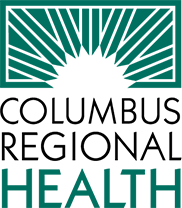Expectant Mothers Should Plan Ahead with Prenatal Care
When you’re expecting, there’s almost no end to the offbeat advice you’ll receive. But don’t lose sight of the most crucial tip: Proper prenatal care helps prevent and treat any issues that develop during pregnancy. In fact, it’s the best thing you can do for your health — and your baby’s. Here are a few tips to get the most from your prenatal care:
GET A HEAD START
If you can, see your doctor before trying to conceive. Together, you can plan ways to prepare. For instance, you may want to stop taking some medications and add others, including folic acid supplements. This key nutrient prevents birth defects.
KEEP YOUR DOCTOR IN THE LOOP
As soon as your pregnancy test turns up positive, call for your first prenatal visit. During this appointment, your doctor will give you a physical exam and ask about your personal and family health history. And, he or she can answer any questions you have about what to expect in the months ahead.
STAY UP-TO-DATE ON TESTS
At each visit, your doctor will weigh you, check your blood pressure, and take samples of your blood and urine. Blood tests check for viruses, high blood glucose and anemia. Urine tests spot kidney problems, urinary tract infections or early signs of gestational diabetes. In some cases, your doctor may recommend special tests to monitor your baby’s heart rate or assess the risk of birth defects. At about 18 to 20 weeks, you’ll get an ultrasound, which uses sound waves to create an image of your baby. STICK
TO YOUR SCHEDULE
Discuss how often to return for checkups. Typically, you’ll go once a month for the first 28 weeks, every two weeks from 28 to 36 weeks and weekly from week 36 on. If you have a health condition or are older than 35, you may need more frequent visits. Don’t skip a visit, even if you’re feeling fine.
DON'T FORGET GOOD NUTRITION
Prenatal care doesn’t stop when you leave the doctor’s office. Every day, eat a variety of healthy foods, including fruits, vegetables and whole grains. Avoid raw fish, deli meats and nonpasteurized cheeses. And talk with your doctor about exercise. In most cases, regular physical activity helps you feel better, improves your sleep and prepares your body for birth.
Columbus Regional Health’s Birthing Center offers a variety of classes. To learn more, go to www.crh.org/birthing.

CRH News
-
CRH recognized for excellence in lactation care
Jun 24, 2024, 15:26 by DeClue, A.In addition, the facility demonstrated that it has recently completed activities that help protect, promote, and support breastfeeding.Full story -
Take the ColumBUS Transit Survey
Jun 20, 2024, 08:33 by Newton, A.ColumBUS Transit is conducting a Route Study to look for opportunities to improve the service. Your input will help guide priorities and inform decisions about the future of public transit in our community.Full story -
Orthopedics and Sports Medicine practice moves to NexusPark
Jun 19, 2024, 14:24 by DeClue, A.CRH Orthopedics and Sports Medicine will open at NexusPark on July 1.Full story -
Memorial Day Holiday Physician Office Hours
May 22, 2024, 11:49 by DeClue, A.In observance of the Memorial Day holiday, most Columbus Regional Health Physicians offices and outpatient clinics will be closed on Monday, May 27, 2024.Full story -
Guardian Response Trains with CRH on Patient Transport
Apr 26, 2024, 15:25 by DeClue, A.On April 29 and May 2, Columbus Regional Health and area first responders will be conducting a training session in partnership with military representatives. This is a planned, simulated emergency drill.Full story -
Final Two CRH Practices Move to NexusPark
Apr 18, 2024, 12:36 by DeClue, A.CRH at NexusPark officially opened in late January, and more than 15 provider practices and services have relocated to the space in the first quarter of 2024.Full story

